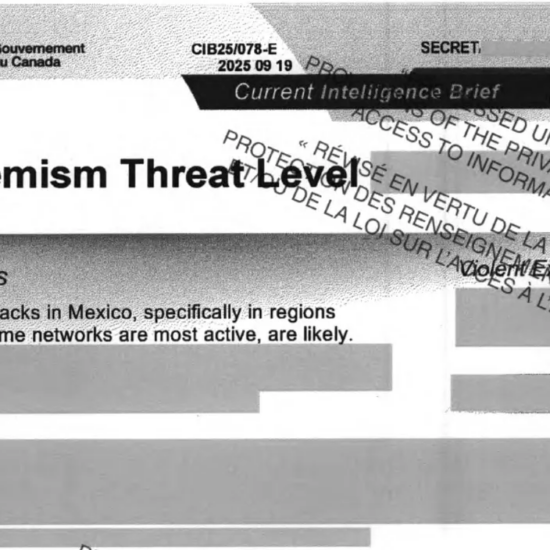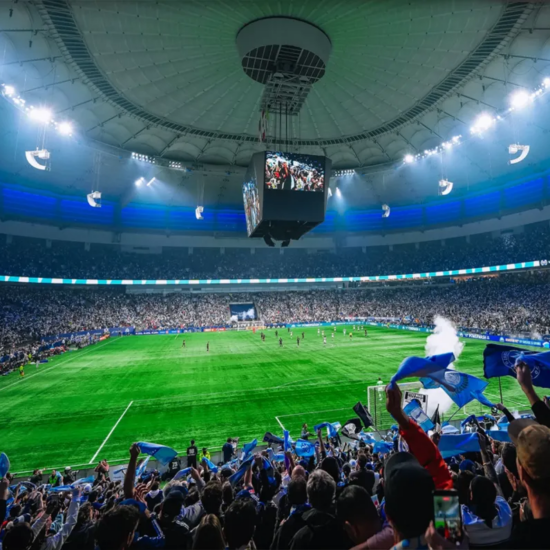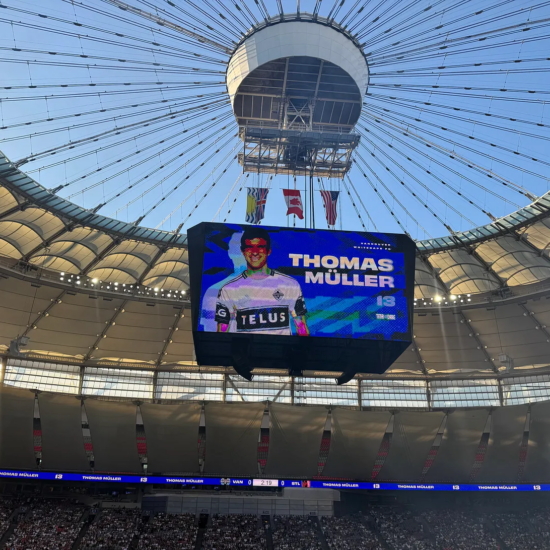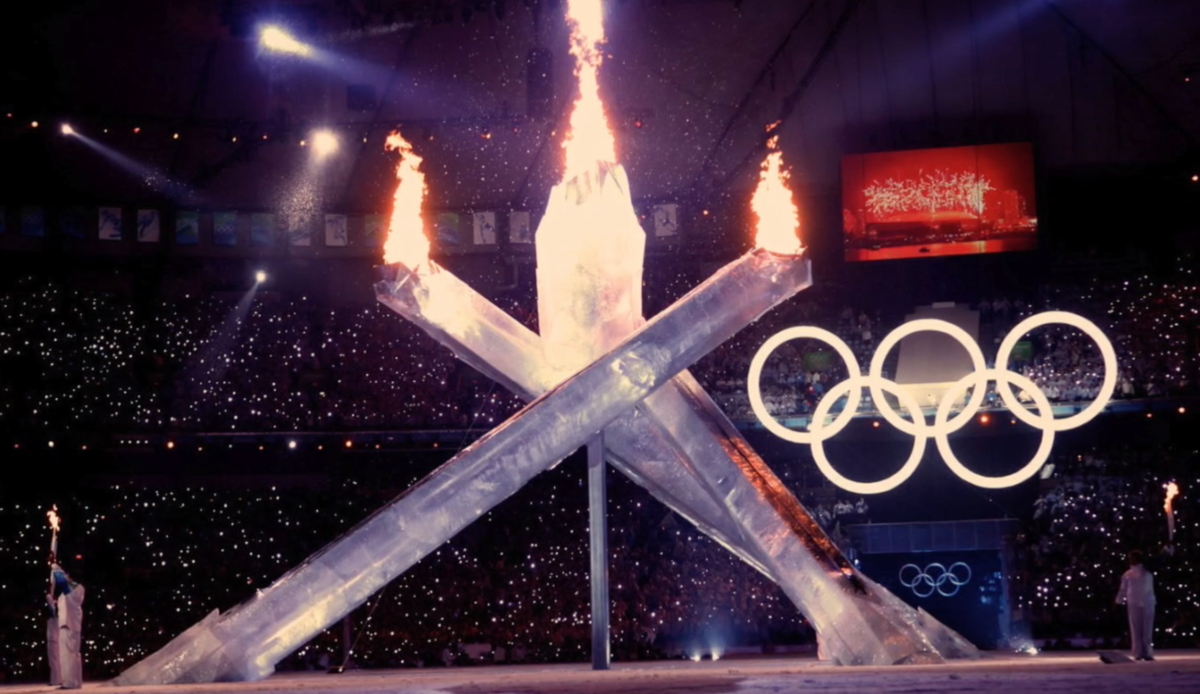
Bob Mackin
The International Olympic Committee sent two employees and a consultant to Vancouver in May to tour sites proposed for the 2030 Winter Olympics.
The IOC and the Canadian Olympic Committee both refused to release their names and titles.

IOC 2030 bid inspectors Mattias Kaestner (left), Pierre Dorsaz and Stefan Klos.
Email obtained from B.C. Place Stadium under freedom of information said the technical advisory experts were Mattias Kaestner, the head of candidature services for future Olympic hosts, Pierre Dorsaz, senior project manager, and Stefan Klos, a venue specialist advisor from Frankfurt-based consultancy Proprojekt.
Proprojekt’s credits include work on the successful Qatar 2022 World Cup and Germany 2024 Euro bids and Almaty, Kazakhstan’s 2022 Winter Olympics bid that lost to Beijing.
Kaestner, Dorsaz and Klos visited Vancouver, Richmond, Whistler and Sun Peaks from May 2-4 after touring sites proposed by the Salt Lake City-Utah Committee for the Games. Sapporo, Japan, the 1972 host, is the other bidder. Barcelona and the Pyrenees withdrew last week.
The IOC plans to announce negotiations with bidders in December and choose the 2030 host when it meets at the end of May 2023 in Mumbai.
The Los Angeles 2028 Summer Olympics could pose a sponsorship challenge for 2002 host Salt Lake City. U.S. Olympic and Paralympic Committee chair Susanne Lyons told the Associated Press her organization prefers hosting 2034 in Utah, but would be ready for 2030 if called upon.
Vancouver, however, does not have the necessary financial backing of the B.C. NDP government. The COC plans to make formal proposals to the B.C. and federal treasury boards in the fall, but the first hurdle is July when municipal politicians in Vancouver and Whistler are expected to decide whether to carry on with the bid. The COC officially discouraged them from calling a referendum in 2022.
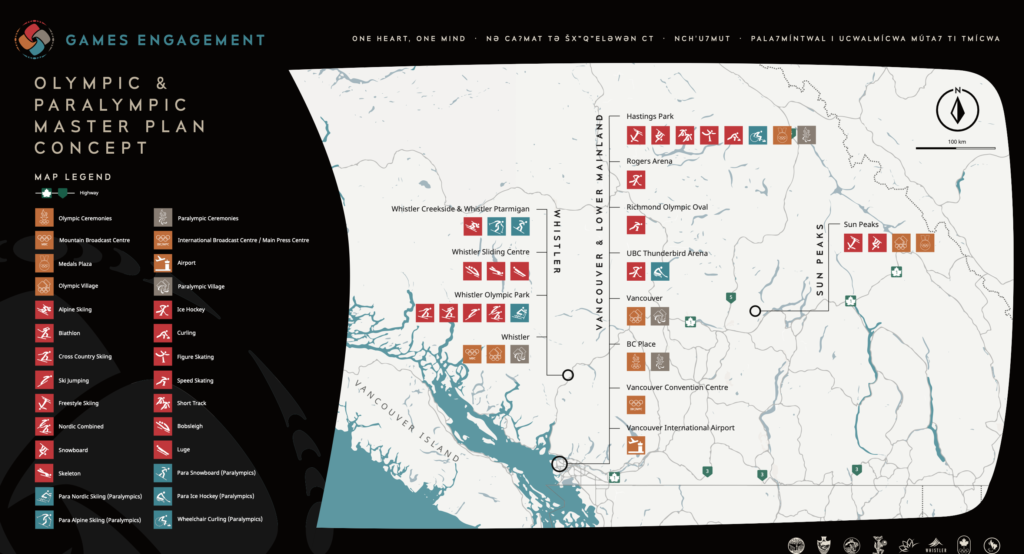
Vancouver 2030 proposed venues map (COC)
The COC released its 26-page feasibility study on June 14 in conjunction with the Musqueam, Squamish, Tsleil-Waututh and Lil’wat first nations. It did not include a cost estimate for the Feb. 8-24, 2030 Olympics or March 8-17, 2030 Paralympics.
“It’s quite a complex calculation, and so we’ll just provide a briefing on that in July,” said COC contractor Mary Conibear, who was managing director of Games operations when Vancouver held the 2010 Winter Olympics.
Kaestner, Dorsaz and Klos’s May 3 itinerary called for visits to: Vancouver Convention Centre; B.C. Place; Rogers Arena; the Trimble Street side of the Jericho Lands, which is proposed for the Vancouver Athletes Village; UBC Thunderbird Arena; Richmond Olympic Oval; and Hastings Park.
On the agenda, Hastings Park was also called the “Olympic/Paralympic Park” because the COC proposes the it use the Pacific Coliseum (figure skating/short-track speed skating), Agrodome (curling), Hastings Racecourse (big air skiing/snowboarding) and PNE Amphitheatre (medals ceremonies/concerts).
The site visits were scheduled for 30 to 60 minutes each, but the Hastings Park stop was scheduled for 90 minutes.
While at B.C. Place, management arranged for a “welcome to B.C. Place” message on the centre-hung video board and ribbon board and provided a catered, 15-minute presentation in the B.C. Place Suite. Security director Brad Parker showed off the 2020-installed metal detectors and explained spectator flow methods before the entourage went next door to Rogers Arena.
COC vice-president Andrew Baker led the feasibility team that accompanied the IOC trio. Joining him were: Vancouver 2030 master planner Tim Gayda; Vancouver 2010 Paralympics director Dena Coward; Niina Haaslahti of It’s Happening Productions; former BC Housing vice-president Craig Crawford; Squamish Nation New Relationship Trust’s Jessie Williams; Alpine Canada coach Pete Bosinger; and Tia Lore, the COC 2030 project coordinator.
Support theBreaker.news for as low as $2 a month on Patreon. Find out how. Click here.






